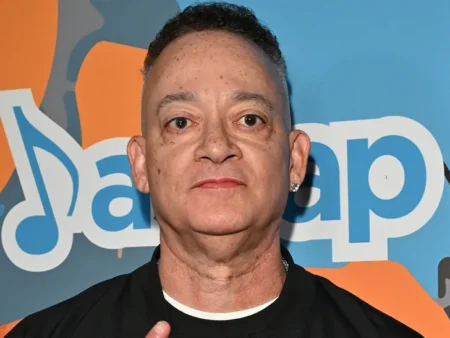R. Kelly’s attorneys have filed an emergency motion seeking his immediate release from federal custody, claiming the embattled singer suffered a near-fatal overdose while being held in solitary confinement.
The 58-year-old R&B star, currently incarcerated in North Carolina, reportedly collapsed in his cell after receiving what his legal team calls a dangerously high dose of medication on June 12 — just two days after being placed in isolation.
Rushed to Hospital After Collapse
According to AllHipHop, Kelly was transported to Duke University Hospital, where doctors confirmed that the dosage could have killed him. He remained under medical observation for two days before being returned to prison.
Attorney Beau Brindley, who represents Kelly, described the incident as deliberate, not a mistake.
“This was no mistake,” Brindley said. “It was a dose that jeopardized his life and nearly ended it.”
Allegations of Intentional Harm and Retaliation
Brindley argues that the timing of the overdose is suspicious, noting it happened shortly after he filed a motion accusing prison officials of endangering Kelly’s life.
The emergency motion marks the third attempt by Kelly’s legal team to seek temporary release from prison, citing life-threatening conditions.
Among their claims is a sworn affidavit from fellow inmate Mikeal Glenn Stine, who alleged that white supremacist groups and prison staff had plotted to kill Kelly in order to cover up misconduct during his high-profile prosecution.
Life in Solitary: “Inhumane” and “Unsanitary”
Following the alleged murder plot, Kelly was moved to solitary confinement — a move his lawyers argue has worsened his physical and mental health.
Brindley says the singer now lives in unsanitary conditions, surrounded by insects, with no access to phones or commissary, and has reportedly refused food for days due to fears of being poisoned.
Doctors also discovered blood clots in both his legs and lungs and reportedly recommended urgent surgery — which never happened.
“Before surgery could be performed,” Brindley claims, “armed guards removed Kelly from the hospital against medical advice and returned him to solitary without treatment.”
Court Rejection, Medical Neglect & A New Plea
Just days before the alleged overdose, the U.S. Supreme Court rejected R. Kelly’s appeal, upholding his 30-year sentence for sex trafficking and racketeering.
Meanwhile, Kelly continues to face civil lawsuits, including a $10 million judgment he has yet to pay to his victims, despite a recent $500,000 partial payment.
Brindley’s emergency motion argues that keeping Kelly behind bars could be fatal, insisting that the prison can no longer ensure his safety.
“This is not a theory,” Brindley emphasized. “Hospital records will confirm he was denied urgent care.”
What’s Next for R. Kelly?
The federal court has yet to respond to the motion for emergency furlough, but the explosive claims — from alleged medical neglect to murder plots — are certain to stir intense scrutiny over Kelly’s treatment in prison and the justice system’s responsibility for inmate safety.
While many remain focused on the severity of his convictions, others are questioning whether human rights are being upheld behind bars.













